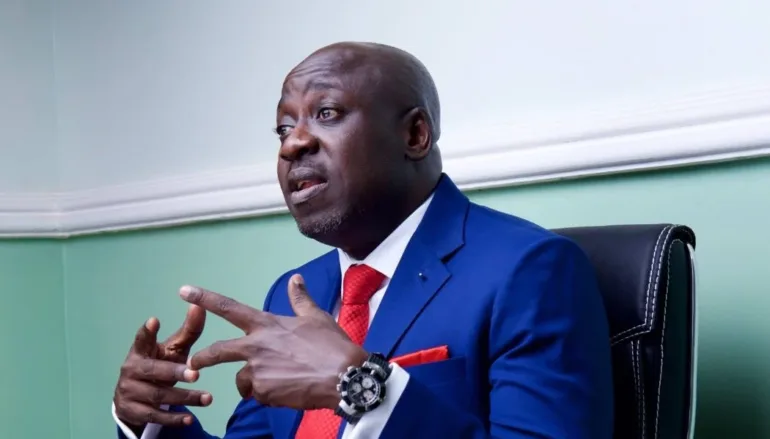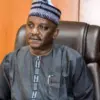The spokesperson of the newly formed opposition coalition, Bolaji Abdullahi, has explained why the group selected the African Democratic Congress (ADC) as its political platform ahead of the 2027 general elections.
Speaking on Politics Today on Channels Television, Abdullahi said the decision was driven by the ADC’s openness to internal reform and its alignment with the coalition’s shared values and vision for the future.
“When we began this journey, we had a set of criteria for the kind of party we wanted. Members from the APC said no, as the party had strayed from its founding principles. PDP members felt the party had lost its way. Labour Party members also voiced regrets about their experiences,” he explained.
“We agreed that moving forward, we needed to align around clear principles. Any party we chose had to be willing to undergo restructuring to reflect our collective vision. Unfortunately, very few parties today have the internal discipline or institutional structure we were looking for—nothing like what existed in the First and Second Republics.”
While acknowledging the ADC’s limitations, Abdullahi described it as a workable foundation.
“The ADC isn’t perfect, but it offers us a unique opportunity for reform. Some say it’s weak, like clay—but that’s exactly why it can be molded into something better. That’s why we chose it.”
“This is nobody’s coalition”
Responding to criticism that the coalition is dominated by political veterans, Abdullahi rejected claims of any single person or faction controlling the group.
“This is nobody’s coalition,” he said. “David Mark is not a front for Atiku. He was chosen as interim national chairman because everyone trusts him. We’ve tried the ‘party-of-big-men’ model, and it didn’t work.”
Abdullahi also condemned the ruling All Progressives Congress (APC), claiming the Tinubu administration is stifling opposition and pushing Nigeria toward a one-party state.
“The Renewed Hope agenda has become hopeless. Nigeria is slipping into a one-party system where opposition voices are being silenced.”
He dismissed recent critics of the coalition’s formation, noting the group had been in development for over 18 months.
“Now that we’ve unveiled our plans, suddenly people are crawling out of the woodwork to question us. Where were they all this while?”
One of the coalition’s most vocal critics is Dumebi Kachikwu, the ADC’s 2023 presidential candidate, who also appeared on the programme. Kachikwu accused the coalition members of being part of Nigeria’s long-standing leadership failures.
“These are the same people who have ruled Nigeria for four decades. Eighty percent of Nigerians are poor. Now they want to act like the fire brigade, trying to put out the fire they started,” he said.
He described them as “enemies of progress” and claimed their takeover of the ADC was illegitimate.
“They came through the back door. Ralph Nwosu, who handed over the party to them, has no authority to do so. His tenure expired two years ago. According to the ADC constitution, you must be a member for at least two years to hold office. This interim leadership is fraudulent.”
Kachikwu said he and other party members would petition the Independent National Electoral Commission (INEC) for clarification and intervention.
Coalition leaders formally adopt ADC
Earlier on Wednesday, the coalition formally adopted the ADC as its platform during a meeting at the Yar’Adua Centre in Abuja. At the event, Ralph Nwosu handed over the party’s membership card to David Mark and Rauf Aregbesola, introduced as interim national chairman and national secretary, respectively.
Notable attendees included former Vice President Atiku Abubakar, Labour Party’s Peter Obi, former governors Nasir El-Rufai and Rotimi Amaechi, as well as political figures like Dino Melaye, Dele Momodu, Solomon Dalung, Senator Gabriel Suswam, Senator Ireti Kingibe, Emeka Ihedioha, and retired Air Marshal Sadique Abubakar.
The meeting also saw participation from politicians across the PDP, Labour Party, and Social Democratic Party, reflecting a broad coalition of opposition forces preparing to challenge the APC in 2027.


